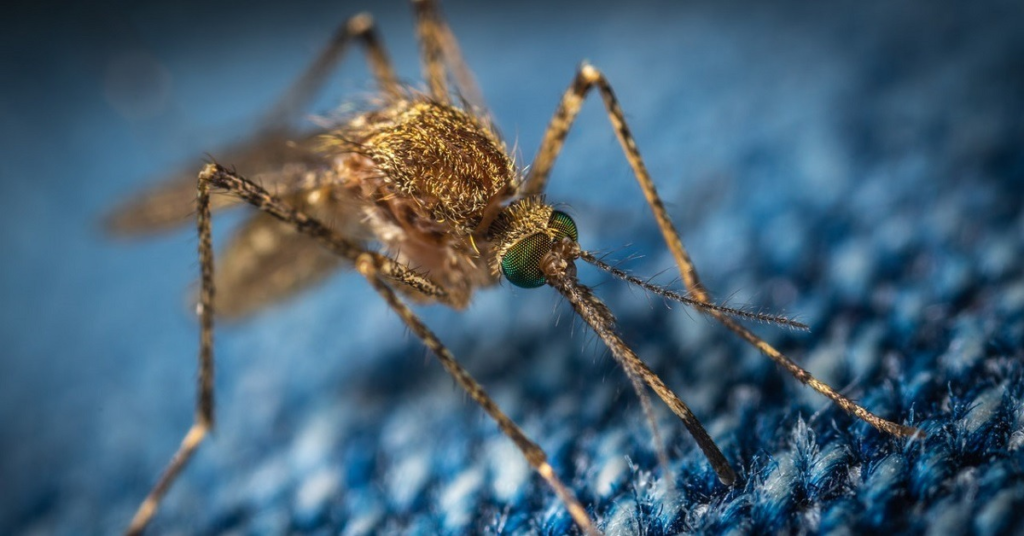| UPSC Relevance Prelims: JEV, dengue, Orthoflavivirus, chymase, ADE, mosquito vectors. Mains (GS II & III): Public health strategies, vaccination policy, impact of climate change on health, biotechnology applications in disease management, global health cooperation. |
Why in News
A new study (September 2025, Science Translational Medicine) has found that when immunity from the Japanese Encephalitis (JE) vaccine decreases over time, it can make people more likely to get severe dengue.
This shows that related viruses can affect each other, and giving timely JE booster shots could help prevent serious dengue infections.

Background
1. Mosquito-Borne Diseases
- Dengue fever and Japanese Encephalitis (JE) are viral infections spread by mosquitoes:
- Dengue → mainly Aedes mosquitoes
- JE → mainly Culex mosquitoes
- Rapid urbanisation, climate change, and global travel are helping these diseases spread to new areas, putting more people at risk.
2. The Viruses
- Both Dengue virus (DENV) and Japanese Encephalitis virus (JEV) belong to the Orthoflavivirus genus.
- Genus → a scientific group that includes related species of viruses.
- Orthoflavivirus → viruses that are structurally similar and can sometimes affect each other’s immunity.
- Earlier studies suggested that immunity to one flavivirus (like JE) could change how severe an infection from another flavivirus (like dengue) becomes, but evidence from real-world outbreaks was limited.
About the Study
Study Setting
● Location: Dharan, Nepal
○ High JEV vaccination coverage since 2006.
○ Low previous dengue exposure, making it easier to see how JE immunity affects dengue severity.
● Timeframe: 2019–2023 (covering three major dengue outbreaks).
● Participants:
○ 546 patients, aged 15–65 years.
○ Enrolled within three days of fever starting.
Methods
The researchers tested patients for:
- Dengue virus serotypes – different types of the dengue virus.
- Immune markers, especially neutralising antibodies against JEV (to see the level of immunity from JE vaccination).
- Chymase – an enzyme released during inflammation, used as a marker for severe dengue.
Key Findings
1. Role of JEV Immunity
- 61% of patients had pre-existing neutralising antibodies against JE.
- Patients with moderate antibody levels (titre 1:160) had higher chymase levels, showing more severe dengue.
- These patients had 3x higher risk of developing dengue with warning signs or severe dengue.
2. Antibody-Dependent Enhancement (ADE)
- Moderate antibody levels can help the virus enter immune cells, worsening infection.
- High antibody levels are protective.
- As immunity wanes over time, people may enter a “middle zone”, where antibodies are too weak to protect but strong enough to enhance infection.
3. Climate Change and Dengue Spread
- Rising temperatures and longer monsoon seasons have changed how dengue spreads.
- Areas with sporadic dengue cases are now seeing large outbreaks.
- India may experience similar trends due to climate change.
4. Importance of JE Vaccination and Boosters
- JE vaccination has significantly reduced encephalitis cases.
- Neutralising antibodies wane over time; after 5 years, only ~63% of vaccinated people retain immunity.
- Booster doses can:
- Maintain long-term protection against JE.
- Reduce the risk of severe dengue caused by waning cross-reactive antibodies.
5. Chymase as a Biomarker
- Chymase is released during immune responses and predicts dengue severity.
- Helps doctors identify high-risk patients early, improving care and outcomes.
Broader Implications
1. Integrated Infectious Disease Strategy
- Vaccination programs should consider how related viruses interact.
- Coordinating JE and dengue management can help reduce the overall disease burden.
2. Climate-Sensitive Public Health Planning
- Rising temperatures and changing rainfall are expanding mosquito habitats, increasing dengue risk areas.
- Countries like India need proactive surveillance and vector control to anticipate outbreaks.
3. Global Health Perspective
- Viruses cross borders easily.
- Regional collaboration in disease monitoring and vaccination policies is vital, especially in Asia.
Way Forward
1. JE Vaccine Boosters
- Introduce timely booster doses to maintain long-term immunity and reduce the risk of severe dengue.
2. Enhanced Surveillance
- Closely monitor dengue outbreaks, especially in populations with low prior dengue exposure.
3. Biomarker-Based Care
- Use chymase and other biomarkers to identify high-risk patients early, improving treatment and outcomes.
4. Research and Policy Integration
- Conduct studies on cross-immunity between flaviviruses.
- Update immunisation strategies based on scientific evidence.
5. Climate and Health Linkages
- Incorporate climate change impacts in planning vector control and other public health measures.
Conclusion
The study underscores a critical link between waning immunity and disease severity, showing that protection against one flavivirus can influence outcomes of another. Strategic JE booster programs, combined with climate-adapted dengue preparedness, offer a path to reducing the burden of mosquito-borne diseases across Asia.
UPSC Prelims Practice Question
Q. Consider the following statements regarding the relationship between Japanese Encephalitis Virus (JEV) and dengue:
- Both JEV and dengue virus belong to the same genus, Orthoflavivirus.
- Waning immunity against JEV can increase the risk of severe dengue.
- High levels of JEV antibodies are associated with higher risk of severe dengue.
- Chymase is a biomarker used to identify severe dengue cases.
Which of the statements given above are correct?
A. 1, 2 and 3 only
B. 1, 2 and 4 only
C. 2, 3 and 4 only
D. 1, 3 and 4 only
Answer: B. 1, 2 and 4 only
Q2. Consider the following about Japanese Encephalitis Virus (JEV) vaccination and dengue:
- Waning JEV immunity can enhance severity of dengue infection in previously dengue-naïve populations.
- Only low antibody levels against JEV increase the risk of severe dengue.
- Booster doses of JE vaccine can reduce the risk of severe dengue.
- Chymase is released by neutrophils during inflammation and predicts dengue severity.
Which of the statements are correct?
A. 1 and 3 only
B. 1, 3 and 4 only
C. 2 and 4 only
D. 1, 2 and 3 only
Answer: A. 1 and 3 only
Explanation: Moderate (not low) waning immunity increases risk, and chymase is released by mast cells, not neutrophils.
Question 3: Match the Following
| Column A | Column B |
| 1. Aedes mosquito | A. Japanese Encephalitis |
| 2. Culex mosquito | B. Dengue |
| 3. Orthoflavivirus | C. Group of related viruses |
Choose the correct answer:
A. 1-B, 2-A, 3-C
B. 1-A, 2-B, 3-C
C. 1-B, 2-C, 3-A
D. 1-C, 2-A, 3-B
Answer: A. 1-B, 2-A, 3-C
SOURCE- THE HINDU
Found this helpful?
Bookmark for revision, Practice the mains question, and
Share with fellow aspirants! THANK YOU
